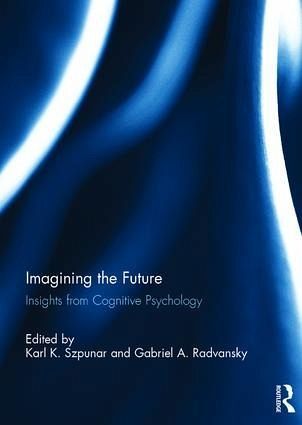
Imagining the Future
Insights from Cognitive Psychology
Herausgeber: Szpunar, Karl; Radvansky, Gabriel
Versandkostenfrei!
Versandfertig in 1-2 Wochen
166,99 €
inkl. MwSt.

PAYBACK Punkte
83 °P sammeln!
One particularly adaptive feature of human cognition is the ability to mentally preview specific events before they take place in reality. This book presents a collection of current perspectives from researchers around the globe, who are working to develop a deeper understanding of the manner in which simulations of future events are constructed; the role of emotion and personal meaning in the context of episodic simulation; and how the ability to imagine specific future events relates to other forms of future thinking such as the ability to remember to carry out intended actions. This book wa...
One particularly adaptive feature of human cognition is the ability to mentally preview specific events before they take place in reality. This book presents a collection of current perspectives from researchers around the globe, who are working to develop a deeper understanding of the manner in which simulations of future events are constructed; the role of emotion and personal meaning in the context of episodic simulation; and how the ability to imagine specific future events relates to other forms of future thinking such as the ability to remember to carry out intended actions. This book was originally published as a special issue of The Quarterly Journal of Experimental Psychology.














